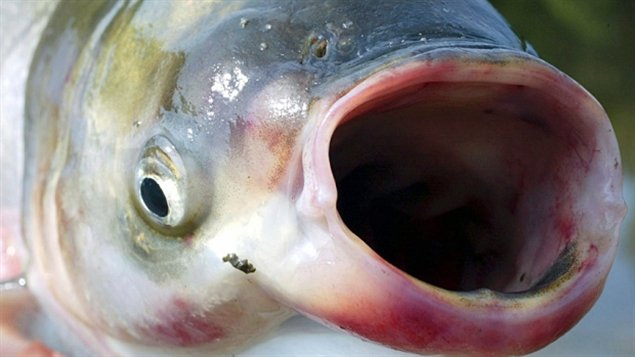An Asian species of fish called grass carp could survive in all of the Great Lakes at the heart of North America, according to a new study, and if they get established, they might significantly damage the environment. The five lakes border the U.S. and Canada. A river links them to the Atlantic Ocean making them a major transportation highway and they provide drinking water to tens of millions of people.
After Asian carp were introduced into the United States in 1963, authorities have struggled to prevent the fish from reaching the Great Lakes, but they have focussed primarily on bighead and silver carp, which eat plankton. Grass carp voraciously eat plants and are used to control nuisance weeds.

Grass carp spawned successfully
Scientists are concerned after they found last year that grass carp had spawned successfully in the Great Lakes and that there were many more of them than they had previously believed.
“What they might do is eat native or sensitive aquatic plants that are in the Great Lakes in places like wetlands that we’re trying to conserve and preserve,” says Marion Wittmann, researcher at Notre Dame University in Indiana. “And because they can eat those plants, they might have an effect on habitat and other species that are important in the Great Lakes.”
Carp could affect water quality, various species
A proliferation of grass carp could affect the quality of the water and fish species such as largemouth bass or bluegill. U.S. officials are already trying to control grass carp by raising and introducing specimens that they have sterilized. Wittmann plans more studies to try to find out more about the impacts that grass carp will have on the Great Lakes and other, smaller lakes in the region.







For reasons beyond our control, and for an undetermined period of time, our comment section is now closed. However, our social networks remain open to your contributions.